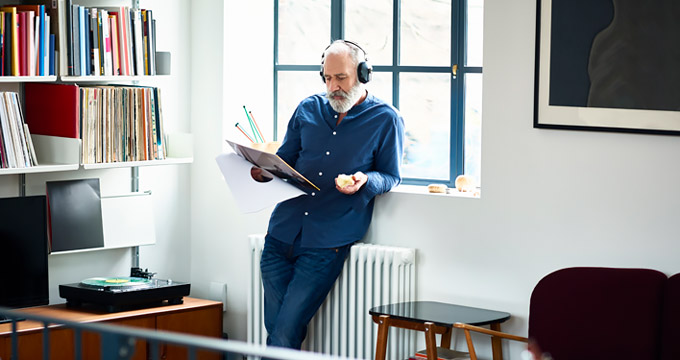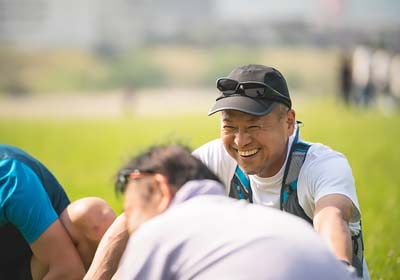
Embarking on the next stage of life is an exciting time. Source: Getty
Oct 28 2019
10 tips to prepare for a successful retirement
Embarking on the next stage of life is an exciting time, but it takes careful planning to ensure your retirement is everything you hope it will be.
Organising your finances is a huge part of planning for retirement but lifestyle considerations are also important when you’re working out how you want to spend your next 20+ years, because after several decades of work, you want to be able to enjoy yourself.
To help you feel confident in your decision to retire, we’ve put together 10 tips for a successful retirement, so you can enjoy the next chapter in your life.
What do I want to do in retirement?
Even before you consider how much money you’ll need when you retire, it’s worthwhile sitting down and writing out your retirement goals.
If you want to be able to travel overseas once or twice a year then your nest egg might need to be a little bit bigger. Take the time to write out what an average year will look like for you and think about things like:
- Holidays
- Existing hobbies
- Learning new skills
- How often you’re likely to eat out

Lifestyle considerations are important when you’re working out how you want to spend your next 20+ years. Source: Getty
How much money do I need to save for retirement?
Now that you know what you want to do, it’s time to work out if you can afford to retire or whether it would be better to work a bit longer.
Take a look at your list of retirement activities and work out how much they might cost. Then add your general living expenses, insurance, plus other big purchases you might make over the next 20 years, like a new car.
Next look at your potential retirement-income sources, which might include superannuation, investments, savings and the aged pension.
A certified financial planner can help you have confidence in the numbers and let you know if you can retire now, or if you need a little bit more in your savings account.
When should I start saving for retirement?
The short answer is: as soon as you can – but if you haven’t thought about it before, don’t worry, it’s never too late to start.
If you’re not planning on retiring for a few years, consider boosting your superannuation by making pre-tax super contributions, also known as salary sacrifice.
The Australian Government’s MoneySmart website can keep you up to date with how much you can contribute.
“A certified financial planner can help you have confidence in the numbers and let you know if you can retire now, or if you need a little bit more in your savings account.”
What are my options for retirement living?
Most people plan to downsize their house at some point during retirement. When it comes time to make the move there are plenty of options to choose from.
While you might want to simply downsize the family home at first, as you get older, retirement villages (including independent living, assisted living, land lease communities and co-located villages) often become more popular choices thanks to their community focus and support available.

If you want to be able to travel overseas once or twice a year then your nest egg might need to be a little bit bigger. Source: Getty
What government entitlements are available for retirement living?
Depending on your retirement living option, you might be eligible for Rent Assistance from the Australian Government.
Because retirement village fee structures can vary, eligibility is based on the amount you paid when you entered the village.
If deemed eligible, you may receive assistance in paying retirement village fees up to $138 each fortnight.
Depending on your circumstances you may also be eligible for the age pension, disability support or carer’s allowance, which can all help support your living costs.
Can I still work after retirement?
Many people prefer to slow down as they approach retirement rather than commit completely. Others find that full-time retirement just isn’t for them.
If this sounds like it could be you, then nothing is stopping you from working during retirement. In fact, it’s encouraged – the first $300 you earn per fortnight won’t be assessed as income under the pension income test.
If you’re over 65 you can continue to work and still access your super.

In Australia, there’s no age that you have to retire by, so if you don’t want to retire, you don’t have to. Source: Getty
Should I change my superannuation investment strategy before I retire?
As you start to plan for your retirement, take the time to look at your current investment strategies for your superannuation.
If you’re planning on accessing your super sooner rather than later, it could be worth looking at a more conservative investment strategy as you have less time to ride out volatile periods – however, it’s always good to speak to a financial planner before making changes to your superannuation investment strategy.
Should I make any final super contributions?
Making pre-tax super contributions, also known as salary sacrifice, not only helps boost your superannuation, but these contributions are usually only taxed at 15%, which is often less than half the tax you’d usually pay on this amount.
If you’re planning on accessing your superannuation within a few years anyway, this is a great way to save a little bit extra for retirement.
“Making pre-tax super contributions, also known as salary sacrifice, not only helps boost your superannuation, but these contributions are usually only taxed at 15%”
How will I access my superannuation?
Once you reach preservation age, the age you can legally access your super (without applying for special consideration for early access), then you’ll be able to withdraw some or all of your superannuation.
You can choose to withdraw your super as a lump sum, as an income stream where you’re regularly paid a set amount, or a combination of the two.
If you choose to withdraw superannuation as an income stream, the remainder stays in your fund and continues to be invested by your fund, just like it did when you were working.
Am I ready to retire?
Finally, it’s worth considering if you’re ready to retire.
In Australia, there’s no age that you have to retire by, so if you don’t want to retire, you don’t have to.
If you’d prefer a little more financial freedom, or simply enjoy working, no one is forcing you to hang up your boots just yet. Take your time and don’t rush into it, after all, you’ve got the rest of your life to enjoy retirement.





